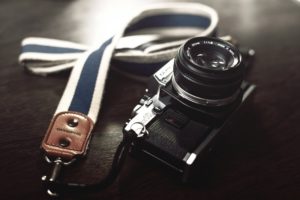 MADISON, Wisc. — A Christian photographer who had a statement on her website advising that she will not shoot same-sex “weddings” is not subject to local public accommodations laws because she doesn’t operate out of a physical storefront, a Wisconsin court said it would rule in a forthcoming opinion.
MADISON, Wisc. — A Christian photographer who had a statement on her website advising that she will not shoot same-sex “weddings” is not subject to local public accommodations laws because she doesn’t operate out of a physical storefront, a Wisconsin court said it would rule in a forthcoming opinion.
Amy Lawson of Amy Lynn Photography Studio had filed a pre-enforcement lawsuit in March against the City of Madison and the Wisconsin Department of Workforce Development in an effort to obtain clarification from the courts as to whether the city and state public accommodations statutes apply to her activities.
Madison’s law makes it illegal “[f]or any person to deny to another … the full and equal enjoyment of any public place of accommodation or amusement because of the person’s protected class membership.”
It also notes that businesses may not “directly or indirectly publish, circulate, display, mail or otherwise disseminate any written communication which she/he knows is to the effect that any of the facilities of any public place of accommodation or amusement will be denied to any person by reason of her/his protected class membership.”
State law also has a similar dissemination prohibition on the books, and also forbids business owners from giving “preferential treatment to some classes of persons in providing services or facilities in any public place of accommodation or amusement because of sex, race, color, creed, sexual orientation, national origin or ancestry.”
Lawson, being represented by the religious liberties organization Alliance Defending Freedom (ADF), outlined that she had posted a statement on her website last year advising that she cannot shoot same-sex ceremonies, but removed it after a client canceled due to objection to her beliefs, and out of worriment—due to other adverse situations nationwide—that she could get in trouble.
She became concerned as to whether or not she would be considered subject to local statutes.
“Amy believes that God created humans to reflect Him by working, that God created humans to do many types of work including to create artistic and aesthetically pleasing things, and that God ordered Christians to honor Him in their work. (Genesis 1:26-28, Genesis 4:21; Psalm 33:3, Colossians 3:17; Colossians 3:23-25; 1 Corinthians 10:31),” the legal challenged outlined.
“Because of these beliefs, Amy cannot separate her religious identity into private and work areas but must honor and serve God in all aspects of her life, including her vocation. (1 Corinthians 10:31; 2 Corinthians 5:14-15; Colossians 3:17; 1 Peter 4:11),” it noted. “Likewise, Amy cannot do anything in her work that dishonors God.”
“Amy, therefore, cannot photograph or write about things celebrating pornography, racism, violence, abortion, or any marriage besides marriage between one man and one woman, such as same-sex marriage.”
The lawsuit sought to challenge the law as being unconstitutional, but on Tuesday, the matter came to a close after it was agreed between the two parties that the language in the city and state statutes regarding a “public place of accommodation or amusement” does not apply to Lawson since she does not own a storefront.
According to the Wisconsin State Journal, the Wisconsin Department of Workforce Development argued in legal briefs that the state public accommodations law has never been applied to those who work out of their homes.
“The state has basically stated that there’s no … case or controversy—no justiciable issue because the statute as interpreted by the Court of Appeals and Supreme Court in the State of Wisconsin does not apply to the plaintiffs because they’re not public accommodations,” Judge Richard Niess also noted during a hearing on Aug. 1.
Niess is expected to issue a ruling accordingly in the coming weeks.
ADF says that it is satisfied that clarification has been obtained in the matter.
“The court’s announcement has important implications for everyone in Wisconsin who values artistic freedom,” Senior Counsel Jonathan Scruggs said in a statement on Tuesday. “It means that government officials must allow creative professionals without storefronts anywhere in the city and state the freedom to make their own decisions about which ideas they will use their artistic expression to promote.”
“The court found—and the city and state have now agreed—that such professionals cannot be punished under public accommodation laws for exercising their artistic freedom because those laws simply don’t apply to them,” he outlined.
Become a Christian News Network Supporter...


